I’m looking for education in
Clinical Topic

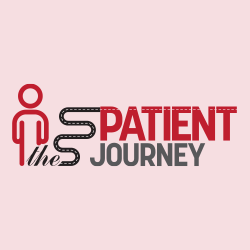

Webcast
1.25 CME/CE
The PBC Journey


1.50 CME/CE
Tackling Eosinophilic Disorders



Webcast
1.50 CME
SM Challenge

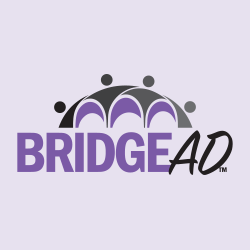

1.00 CME/CE
Workshop 1: AU Memory Assessment Clinic


Webcast
1.00 AMA PRA
Severe Asthma Bridge

0.25 ACPE
Providing PEP/PrEP in the Pharmacy Setting: Maine Edition



1.00
CME/CE
Top 10 Strategies to Change the Course of T1D
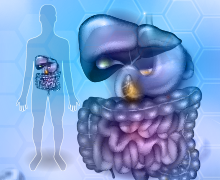

Webcast
0.50 AMA PRA
Precision Learning for Confident Primary Biliary Cholangitis (PBC) Care


Webcast
1.50 CME/CE
From Indolent to Aggressive
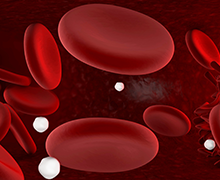

Webcast
1.50 AMA PRA
Staying in the Lead


Webcast
1.00 CME
Building Bridges Between Treatment Centers and Community Practices
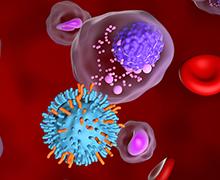

Webcast
1.00 AMA PRA
CAR T-cell Therapy in MM


Webcast
1.00 CME
Game On
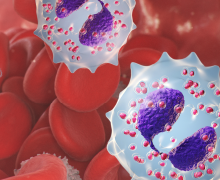
Webcast
1.50 AMA PRA
From Delay to Damage

Monograph
2.00 ACPE
Pharmacists at the Frontline of HIV Prevention
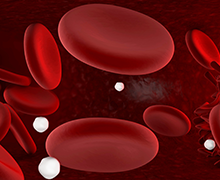

1.25 CME/CE
On Track for Change


Webcast
1.00 AMA PRA
Top 10 Questions From The Community


Webcast
1.00 AMA PRA
Finding the Path in Idiopathic Hypersomnia:

Webcast
1.25 CME/CE
Shining a Light


2.50
AMA PRA
HIV Prevention Strength Training


Webcast
1.00 CME
Finding the Path in Nonadvanced Systemic Mastocytosis
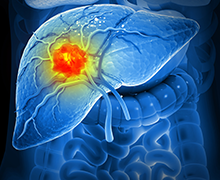

Webcast Series
0.75
CME/CE
Team at the Center


1.00 AMA PRA
BRIDGE AD 2025

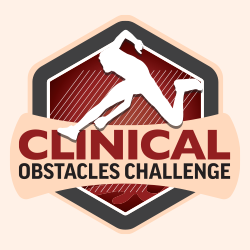
Webcast
1.00 AMA PRA
Clearing the Hurdles in Chronic Rhinosinusitis With Nasal Polyps:


Webcast Series
1.00
CME/CE
Answers to Everyday Challenges in PrEP Practice

Webcast Series
1.25
AMA PRA
An Ounce of Prevention


eHealthSource
2.00
AMA PRA
Covering the Span of Primary Care Educational Needs in PrEP Implementation


1.00 CME/CE
Finding the Path in EGPA


1.00 MOC/CME/ANCC
Overcoming Obstacles to MASH Diagnosis and Management


Webcast
2.00
CME/CE
Answers to Everyday Practice Challenges in HIV Medicine: Volume 3 - A Phone-a-Friend Peer Consult Series


Webcast
1.50 CME/CE
Interleukin-33 and Lower Tract Respiratory Diseases


1.50 AMA PRA
Turning the Tide on Eosinophilic Granulomatosis With Polyangiitis
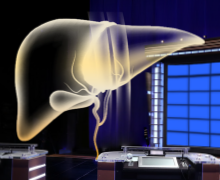

Webcast
1.00 AMA PRA
Can You Master MASH Diagnosis and Management?


Multi-Part Activity
1.00
CME/CE
Targeted Workouts: Building Skills in Management of Unique HIV Populations

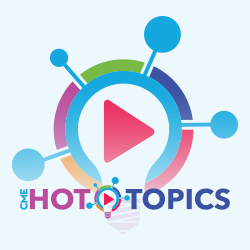
Webcast Series
1.50
CME/CE
Hot Topics in Systemic Lupus Erythematosus

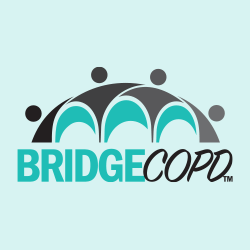
Webcast
1.00 AMA PRA
Building Bridges with Community Health Centers to Improve COPD Outcomes


Webcast
1.50 CME/CE
Managing Nonadvanced Systemic Mastocytosis

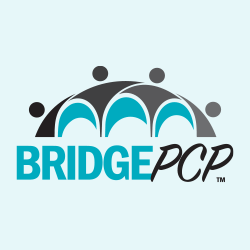
Webcast
1.00 CME/CE
BRIDGE PCP: Building Bridges to Improve Care Delivery and Close Gaps in Primary Care Practice - HIV and PrEP Edition


1.00 CME/CE
Exploring the Spectrum of Virologic Failure in HIV
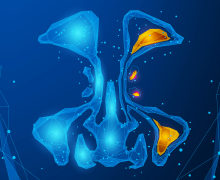
Webcast
1.00 AMA PRA
Epithelial Cytokines and Chronic Airway Diseases


1.00 CME/CE
Combating Common Cardiometabolic Comorbidities in Aging People with HIV

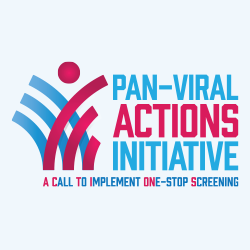
Webcast
1.00 CME/CE
Pan-Viral ACTIONS Initiative

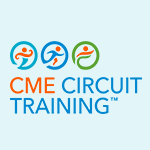
2.50
MOC/CME/ANCC
PBC Powerlifting


1.00 CME/CE
The LAI PrEP Journey


2.50
CME/AANP
Obesity Management in the GLP-1–RA Era



Webcast
1.25 CME/CE
The PBC Journey
Staying Ahead on the Lifelong Path to Optimal Outcomes
| Faculty: | HoChong Gilles, DNP, FNP-BC, AF-AASLD; Aparna Goel, MD |
| Release: | 03/02/2026 |
| Expiration: | 03/02/2027 |


1.50 CME/CE
Tackling Eosinophilic Disorders
A Focus on Eosinophilic Granulomatosis with Polyangiitis and Hypereosinophilic Syndrome
| Faculty: | Anisha B. Dua, MD, MPH; Flavia Hoyte, MD; Michael E. Wechsler, MD, MMSc |
| Release: | 03/01/2026 |
| Expiration: | 03/31/2026 |



Webcast
1.50 CME
SM Challenge
Competing to Master the Management of NonAdvanced SM
| Faculty: | Brian Chernak, MD; Matthew P. Giannetti, MD ; Anne L. Maitland, MD, PhD |
| Release: | 02/28/2026 |
| Expiration: | 03/28/2026 |



1.00 CME/CE
Workshop 1: AU Memory Assessment Clinic
On-Demand: Laying the Foundation for Administering Antiamyloid mAbs for Patients With Early AD
| Faculty: | Lawrence S. Honig, MD, PhD |
| Release: | 02/27/2026 |
| Expiration: | 03/27/2026 |


Webcast
1.00 AMA PRA
Severe Asthma Bridge
Improving Clinical Outcomes For Patients with Severe or Uncontrolled Asthma
| Faculty: | Krystal Cleven, MD, MS; Mauli B. Desai, MD; Anand Kumthekar, MD, RhMSUS - Content Reviewer/Course Director |
| Release: | 02/11/2026 |
| Expiration: | 02/11/2027 |

0.25 ACPE
Providing PEP/PrEP in the Pharmacy Setting: Maine Edition
A State-Specific PrEP/PEP Primer
| Faculty: | Katie Rutherford |
| Release: | 01/30/2026 |
| Expiration: | 01/30/2027 |



1.00 CME/CE
Top 10 Strategies to Change the Course of T1D
| Course 1: | Spot T1D Early, Act Sooner |
| Course 2: | Delivering Disease-Modifying Therapy in T1D |


Webcast
0.50 AMA PRA
Precision Learning for Confident Primary Biliary Cholangitis (PBC) Care
A CME Catalyst Curriculum™
| Faculty: | Nancy S. Reau, MD |
| Release: | 01/15/2026 |
| Expiration: | 01/15/2027 |


Webcast
1.50 CME/CE
From Indolent to Aggressive
Case-Based Strategies Across the Spectrum of Systemic Mastocytosis
| Faculty: | Matthew P. Giannetti, MD ; Brian Chernak, MD; Tsewang Tashi, MD |
| Release: | 01/13/2026 |
| Expiration: | 01/13/2027 |


Webcast
1.50 AMA PRA
Staying in the Lead
Navigating the Changing Course of Sickle Cell Disease Management
| Faculty: | Lakiea Bailey, PhD; Modupe Idowu, MD; Nirmish Shah, MD |
| Release: | 01/06/2026 |
| Expiration: | 01/06/2027 |


Webcast
1.00 CME
Building Bridges Between Treatment Centers and Community Practices
Reducing Knowledge Gaps in the Management of Systemic Mastocytosis - East Region
| Faculty: | Prithviraj Bose, MD; Matthew P. Giannetti, MD |
| Release: | 12/19/2025 |
| Expiration: | 12/19/2026 |


Webcast
1.00 AMA PRA
CAR T-cell Therapy in MM
Dialogue Between a MM Expert and a Community Oncologist
| Faculty: | Krina K. Patel, MD, MSc; Amanda Bucheit, MD |
| Release: | 12/05/2025 |
| Expiration: | 12/05/2026 |


Webcast
1.00 CME
Game On
Advancing Care in Nonadvanced Systemic Mastocytosis
| Faculty: | Matthew P. Giannetti, MD ; Anne L. Maitland, MD, PhD; Tsewang Tashi, MD |
| Release: | 12/05/2025 |
| Expiration: | 12/05/2026 |

Webcast
1.50 AMA PRA
From Delay to Damage
Changing the EGPA Trajectory With Early Diagnosis and Biologic Therapy
| Faculty: | Brian D. Jaros, MD; Philip Seo, MD, MHS; Michael E. Wechsler, MD, MMSc |
| Release: | 12/04/2025 |
| Expiration: | 12/04/2026 |

Monograph
2.00 ACPE
Pharmacists at the Frontline of HIV Prevention
A Guide to Expanding Access to PEP and PrEP
| Faculty: | Josh Havens, PharmD; Arsalan "RC" Shah, PharmD, MBA |
| Release: | 12/03/2025 |
| Expiration: | 12/03/2026 |


1.25 CME/CE
On Track for Change
Are You on Pace With the Evolving Treatment Landscape in SCD?
| Faculty: | Modupe Idowu, MD; Santosh L. Saraf, MD; India Sisler, MD |
| Release: | 11/17/2025 |
| Expiration: | 11/17/2026 |


Webcast
1.00 AMA PRA
Top 10 Questions From The Community
Optimizing Management of Myelodepletive Myelofibrosis
| Faculty: | Andrew Kuykendall, MD |
| Release: | 11/05/2025 |
| Expiration: | 11/05/2026 |


Webcast
1.00 AMA PRA
Finding the Path in Idiopathic Hypersomnia:
Best Practices in Diagnosis and Management
| Faculty: | Anne Marie Morse, DO, FAASM; Haley Wall |
| Release: | 10/29/2025 |
| Expiration: | 10/29/2026 |

Webcast
1.25 CME/CE
Shining a Light
on the PCP’s Role in HIV Prevention
| Faculty: | Shauna Applin, A-NP, AAHIVs |
| Release: | 10/27/2025 |
| Expiration: | 10/27/2026 |


2.50 AMA PRA
HIV Prevention Strength Training
| Course 1: | HIV Prevention in OB/GYN Care |
| Course 2: | HIV Prevention Belongs in Pediatric Care |


Webcast
1.00 CME
Finding the Path in Nonadvanced Systemic Mastocytosis
Best Practices in Recognition and Management
| Faculty: | John M. Fahrenholz, MD |
| Release: | 10/03/2025 |
| Expiration: | 10/03/2026 |


Webcast Series
0.75 CME/CE
Team at the Center
| Course 1: | Management of newly diagnosed patient with intermediate-stage HCC |
| Course 2: | Management of patients with intermediate-stage HCC who progressed after a partial response to TACE therapy |
| Course 3: | Management of a patient with intermediate-stage HCC who has experienced a TRAE |


1.00 AMA PRA
BRIDGE AD 2025
Building BRidges to BrIng AntiamyloiD Monoclonal Antibodies to EliGible PatiEnts With Alzheimer’s Disease
| Faculty: | Lawrence S. Honig, MD, PhD; David C. Weisman, MD |
| Release: | 09/10/2025 |
| Expiration: | 09/10/2026 |


Webcast
1.00 AMA PRA
Clearing the Hurdles in Chronic Rhinosinusitis With Nasal Polyps:
Overcoming Barriers to Biologic-Based Therapy
| Faculty: | Kathleen M. Buchheit, MD; Joseph K. Han, MD, FARS, FAAOA |
| Release: | 09/01/2025 |
| Expiration: | 09/01/2026 |


Webcast Series
1.00 CME/CE
Answers to Everyday Challenges in PrEP Practice
| Course 1: | Managing PrEP Regimen Changes to Meet Patient Lifestyle Needs |
| Course 2: | Overcoming Challenges to PrEP Initiation and Retention |
| Course 3: | Optimizing LAI PrEP Implementation Models |
| Course 4: | What’s New in PrEP? |

Webcast Series
1.25 AMA PRA
An Ounce of Prevention
| Course 1: | Hemophilia and the Coagulation Cascade |
| Course 2: | Individualized Nonfactor Therapy for Hemophilia |


eHealthSource
2.00 AMA PRA
Covering the Span of Primary Care Educational Needs in PrEP Implementation
| Course 1: | PrEP Toolkit for PCPs |
| Course 2: | PrEP 201 |


1.00 CME/CE
Finding the Path in EGPA
Diagnostic and Therapeutic Best Practices
| Faculty: | Anisha B. Dua, MD, MPH; Michael E. Wechsler, MD, MMSc |
| Release: | 07/30/2025 |
| Expiration: | 07/30/2026 |


1.00 MOC/CME/ANCC
Overcoming Obstacles to MASH Diagnosis and Management
A Clinical Obstacles Challenge
| Faculty: | Naim Alkhouri, MD, FAASLD, DABOM |
| Release: | 06/30/2025 |
| Expiration: | 06/30/2026 |


Webcast
2.00 CME/CE
Answers to Everyday Practice Challenges in HIV Medicine: Volume 3 - A Phone-a-Friend Peer Consult Series
| Course 1: | Evolving Best Practices for LAI Implementation |
| Course 2: | Addressing Weight Gain in People With HIV in the GLP-1 RA Era |
| Course 3: | The Future of ART: Broadly Neutralizing Antibodies (bNabs) and 2-Drug Regimens |
| Course 4: | Devising Subsequent ART for Heavily Treatment-Experienced Patients |
| Course 5: | Optimizing Care for Adolescents and Young Adults With HIV |
| Course 6: | Intersection of HIV Treatment and Harm Reduction in People With SUD |
| Course 7: | Depression in People with HIV |
| Course 8: | Cancer Screening in People With HIV |


Webcast
1.50 CME/CE
Interleukin-33 and Lower Tract Respiratory Diseases
Moving From Pathophysiology to Management
| Faculty: | Jonathan M. Hand, MD; Professor Tom Wilkinson MA Cantab MBBS PhD FRCP FERS; Professor Dave Singh MD, FERS, FBPhS |
| Release: | 06/23/2025 |
| Expiration: | 06/23/2026 |


1.50 AMA PRA
Turning the Tide on Eosinophilic Granulomatosis With Polyangiitis
New Targeted Strategies to Reduce Disease Burdens
| Faculty: | Michael E. Wechsler, MD, MMSc; Praveen Akuthota, MD; Anisha B. Dua, MD, MPH; Jason M. Springer, MD |
| Release: | 06/20/2025 |
| Expiration: | 06/20/2026 |


Webcast
1.00 AMA PRA
Can You Master MASH Diagnosis and Management?
A CME Jeopardy™ Activity
| Faculty: | Sonal Kumar, MD, MPH; Mazen Noureddin, MD, MHSc; Kymberly D. Watt, MD |
| Release: | 06/04/2025 |
| Expiration: | 06/04/2026 |


Multi-Part Activity
1.00 CME/CE
Targeted Workouts: Building Skills in Management of Unique HIV Populations
| Course 1: | Incorporating Trauma-Informed Care into HIV Practices |
| Course 2: | Addressing Mental Health Challenges in People With HIV |
| Course 3: | Improving Equitable Care for People With HIV Experiencing Homelessness |
| Course 4: | Overcoming Challenges in People With HIV and Substance Use Disorder |


Webcast Series
1.50 CME/CE
Hot Topics in Systemic Lupus Erythematosus
| Course 1: | An Overview of New ACR Lupus Clinical Practice Guidelines |
| Course 2: | ACR Guidelines on New Treatment Paradigms for SLE |
| Course 3: | ACR Lupus Guidelines and Comprehensive Patient Management |


Webcast
1.00 AMA PRA
Building Bridges with Community Health Centers to Improve COPD Outcomes
Building Bridges with Community Health Centers to Improve COPD Outcomes
| Faculty: | Sarah Sungurlu, DO; T. S. Dharmarajan, MD, MACP ; Anand Kumthekar, MD, RhMSUS - Content Reviewer/Course Director |
| Release: | 05/19/2025 |
| Expiration: | 05/19/2026 |


Webcast
1.50 CME/CE
Managing Nonadvanced Systemic Mastocytosis
An Expert Roundtable Session
| Faculty: | Anton Rets, MD; Matthew P. Giannetti, MD ; Lauren M. Madigan, MD |
| Release: | 05/09/2025 |
| Expiration: | 05/09/2026 |


Webcast
1.00 CME/CE
BRIDGE PCP: Building Bridges to Improve Care Delivery and Close Gaps in Primary Care Practice - HIV and PrEP Edition
A BRIDGE PCP Webcast
| Faculty: | Robert S. Beil, MD, AAHIVS ; Barry S. Zingman, MD |
| Release: | 04/17/2025 |
| Expiration: | 04/17/2026 |


1.00 CME/CE
Exploring the Spectrum of Virologic Failure in HIV
From Resistance Testing to Heavily Treatment-Experienced Patients
| Faculty: | Eric S. Daar, MD |
| Release: | 04/11/2025 |
| Expiration: | 04/11/2026 |

Webcast
1.00 AMA PRA
Epithelial Cytokines and Chronic Airway Diseases
A Closer Look at Chronic Rhinosinusitis With Nasal Polyps
| Faculty: | Kathleen M. Buchheit, MD; Joseph K. Han, MD, FARS, FAAOA; Flavia Hoyte, MD |
| Release: | 04/01/2025 |
| Expiration: | 04/01/2026 |


1.00 CME/CE
Combating Common Cardiometabolic Comorbidities in Aging People with HIV
A Clinical Obstacles Challenge
| Faculty: | Laura Waters, MD, FRCP |
| Release: | 04/01/2025 |
| Expiration: | 04/01/2026 |


Webcast
1.00 CME/CE
Pan-Viral ACTIONS Initiative
A Call to Implement One-Stop Screening for HIV, HCV & HBV
| Faculty: | Stacey B. Trooskin, MD, PhD, MPH |
| Release: | 03/26/2025 |
| Expiration: | 03/26/2026 |


2.50 MOC/CME/ANCC
PBC Powerlifting
| Course 1: | Activity 1: Are You Missing PBC? |
| Course 2: | Activity 2: A Complete Guide to PBC Disease and Symptom Management |
| Course 3: | Activity 3: Testing Your Fitness with New Treatment Options in PBC Practice |


1.00 CME/CE
The LAI PrEP Journey
Empowering Patients in HIV Prevention
| Faculty: | Josh Havens, PharmD; Aniruddha (Anu) Hazra, MD |
| Release: | 03/18/2025 |
| Expiration: | 03/18/2026 |


2.50 CME/AANP
Obesity Management in the GLP-1–RA Era
| Course 1: | Recognizing Obesity as a Chronic Disease |
| Course 2: | Discussing Obesity and Obesity Medication with Patients |
| Course 3: | Optimizing Pharmacologic Options for Obesity Management |
| Course 4: | How Do You Incorporate Nutritional Counseling, Exercise Prescription, and Monitoring of Pharmacologic Therapy into Primary Care Practice? |
| Course 5: | Managing Adolescents with Obesity |
| Course 6: | Treating Concomitant Obesity and Type 2 Diabetes |
| Course 7: | Exploring the Risk for Metabolic Dysfunction-Associated Steatotic Liver Disease in Patients with Obesity |
| Course 8: | Combining GLP-1–RAs and Bariatric Surgery |
| Course 9: | Cardiovascular Benefits of Obesity Medications |
| Course 10: | Combating Racial Disparities in Obesity |






